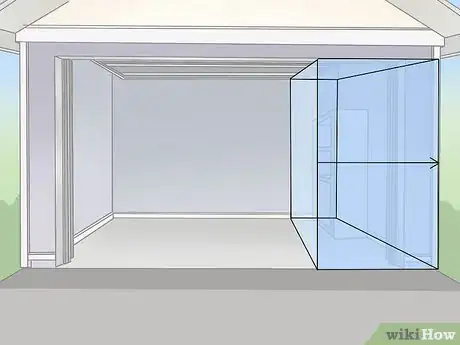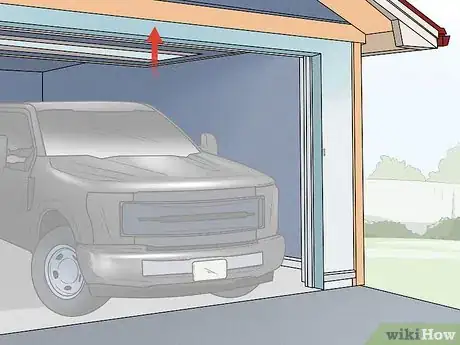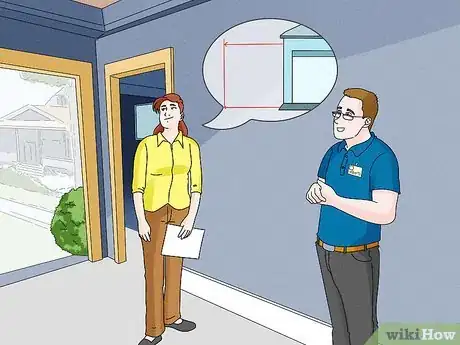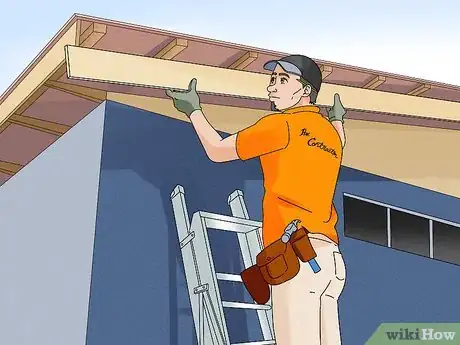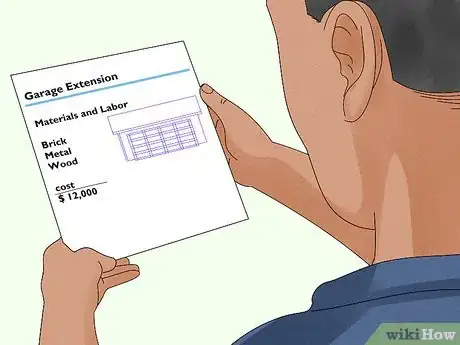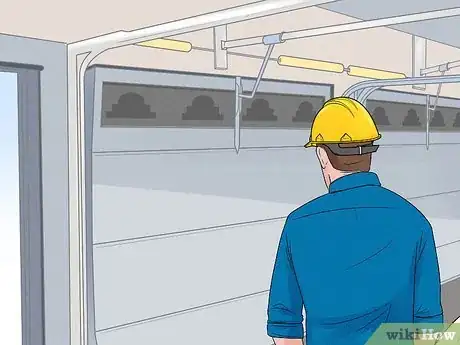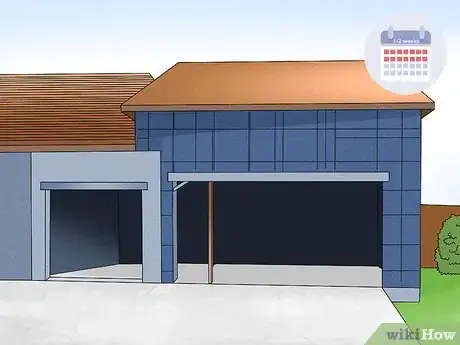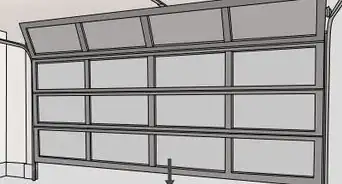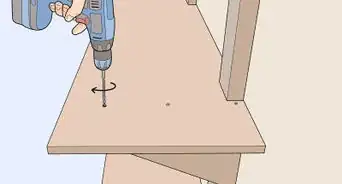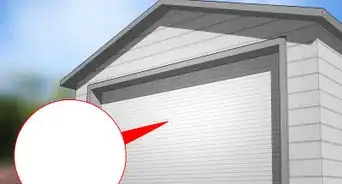This article was co-authored by James Mansfield and by wikiHow staff writer, Janice Tieperman. James Mansfield is a Construction and Design Specialist and the CEO of WestVillage General Contracting, a high-end and luxury design/build firm in New York City. James specializes in apartment, bathroom, and kitchen remodeling as well as fine cabinetry, lighting, paint, and wallpaper. James has developed a proprietary system of construction called the Luxury Build Method that hinges on a skilled team, respected partnerships, and clear, transparent communication. WestVillage GC has completed more than 500 commercial and residential projects in New York with designers such as David Scott Interiors and Fox Nahem, Kelly Behun. WestVillage GC is also a preferred contractor for Related buildings including Hudson Yards.
This article has been viewed 72,897 times.
Is your garage a bit too cramped for comfort, or are you looking to repurpose some unused space? Garage extensions are definitely a big undertaking, but the end results are very rewarding. If you aren’t sure where to start, check out this guide—it tackles several frequently-asked questions about garage extensions, so you can put your best foot forward during your future home improvements!
Steps
How can I extend my one-car garage?
-
1Lengthen your garage to create a larger workspace. Does your garage tend to double as a home workshop? When you lengthen your garage, you create a lot more room for your tools and equipment. This type of extension can also provide more storage space, or help convert your garage into another living space.[1]
- For instance, you might lengthen your garage to make room for a home gym.
-
2Widen your garage to fit more cars. Parking space is essential to any home, especially if you’re getting a new car. Transform your one-car garage into a two-car garage, or widen your garage slightly to give your car a little more room.[2]
- A small extension can help if you store bikes and other outdoor equipment in your garage.
Advertisement -
3Raise your garage height to fit bigger vehicles. A typical garage is great for basic vehicles, like sedans and SUVs, but likely won’t be tall enough for a trailer or RV. A taller garage can also fit a car lift, which makes working on your vehicles much easier.[3]
- Garage height extensions are great if you don’t have enough space to extend in other directions.
How much does a garage extension cost?
-
1The average garage extension costs over $12,000. When you break it down, garage extension projects are a combination of materials and labor. Certain materials, like brick and metal, are significantly more expensive than other building materials, like wood. Additionally, bigger projects, like converting a one-car garage into a two-car garage take more time to complete, and cost more than a smaller add-on.[8]
- The pricing will ultimately depend on the contractor you work with. Scout out different quotes online before committing to a specific builder!
-
2The extension will cost more if you hire construction specialists. If you’re expanding and converting your garage into a different space, you may need extra professionals to finish the job, like carpenters and electricians. For large-scale jobs, like an addition, you might also hire an architect or designer to draw out the extension plans.[9]
Expert Q&A
-
QuestionShould I insulate an unheated garage?
 James MansfieldJames Mansfield is a Construction and Design Specialist and the CEO of WestVillage General Contracting, a high-end and luxury design/build firm in New York City. James specializes in apartment, bathroom, and kitchen remodeling as well as fine cabinetry, lighting, paint, and wallpaper. James has developed a proprietary system of construction called the Luxury Build Method that hinges on a skilled team, respected partnerships, and clear, transparent communication. WestVillage GC has completed more than 500 commercial and residential projects in New York with designers such as David Scott Interiors and Fox Nahem, Kelly Behun. WestVillage GC is also a preferred contractor for Related buildings including Hudson Yards.
James MansfieldJames Mansfield is a Construction and Design Specialist and the CEO of WestVillage General Contracting, a high-end and luxury design/build firm in New York City. James specializes in apartment, bathroom, and kitchen remodeling as well as fine cabinetry, lighting, paint, and wallpaper. James has developed a proprietary system of construction called the Luxury Build Method that hinges on a skilled team, respected partnerships, and clear, transparent communication. WestVillage GC has completed more than 500 commercial and residential projects in New York with designers such as David Scott Interiors and Fox Nahem, Kelly Behun. WestVillage GC is also a preferred contractor for Related buildings including Hudson Yards.
Construction & Design Specialist That depends on where you live—if you live somewhere that gets really cold, yes, you probably should. It will cost a little more in the short term, but insulation and sheetrock will help the garage trap as much heat from the house as possible. If you don't insulate it, your heating bill over the next 4-5 years might outrun what it would have cost you to finish the walls in the first place.
That depends on where you live—if you live somewhere that gets really cold, yes, you probably should. It will cost a little more in the short term, but insulation and sheetrock will help the garage trap as much heat from the house as possible. If you don't insulate it, your heating bill over the next 4-5 years might outrun what it would have cost you to finish the walls in the first place.
References
- ↑ https://artisandoorworks.com/garage-expansion-ideas/
- ↑ https://artisandoorworks.com/garage-expansion-ideas/
- ↑ https://artisandoorworks.com/garage-expansion-ideas/
- ↑ https://www.thisoldhouse.com/barrington-beach-house/21017553/6-steps-to-adding-on-above-the-garage
- ↑ https://www.bobvila.com/slideshow/move-out-10-ways-to-expand-into-your-garage-47789
- ↑ https://fremont.gov/DocumentCenter/View/36302/R-1-Zoning-Standards
- ↑ https://www.garageliving.com/blog/five-things-to-consider-when-expanding-your-garage/
- ↑ https://www.myjobquote.co.uk/costs/garage-extension
- ↑ https://www.myjobquote.co.uk/costs/garage-extension

